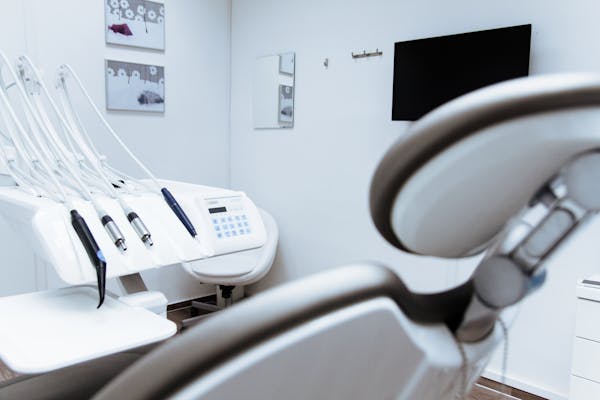7th Circuit affirms judgment to Eskenazi in dental hygienist’s discrimination suit
[ad_1]
A dental hygienist who claimed she did not get a shell out raise as a result of racial discrimination dropped her attractiveness of the judgment in favor of her employer at the 7th Circuit Court docket of Appeals.
Lily Abebe, a Black female of Ethiopian origin, began a job at Eskenazi Health’s Grassy Creek Dental Clinic in 2014. Abebe was an “expanded function” dental assistant, which means she was properly trained to fill cavities.
All staff members at the clinic acquired once-a-year functionality evaluations, with rankings ranging from unsatisfactory to outstanding on a to 4 scale.
Throughout her work at the clinic, Abebe allegedly had a record of behavior troubles, and her once-a-year general performance opinions never ever attained a rating increased than 2.27. Her least expensive score, 1.43, arrived in 2018, and the decline was attributed to her confrontational mindset and difficulty cooperating with co-workers.
Getting a score lower than 2. for 2018 prevented Abebe from receiving a benefit-based pay out raise in 2019, prompting her to request reduction from the Equivalent Employment Chance Fee.
Abebe alleged to the EEOC that she had expert race- and nationwide origin-primarily based discrimination at get the job done and that a few incidents transpired before her 2018 overall performance critique, together with an incident in which a white dental hygienist allegedly still left out an open up needle for her to clean up up. She also alleged that she knowledgeable problems with a dentist whom she claimed had pushed and communicated rudely with multiple individuals, such as Abebe.
Furthermore, Abebe contested a protocol for examining out dental burs utilised for filling cavities, alleging that the only other dental hygienist who loaded cavities experienced superior obtain to the burs mainly because they had been saved in her office.
An EEOC investigator identified there was likely no cause for further EEOC investigation. Afterwards that month, Abebe was positioned on a functionality enhancement program, though Eskenazi finally resolved not to impose the plan.
Abebe then sued Eskenazi Wellness below Title VII of the Civil Rights Act and 42 U.S.C. § 1981, alleging her employer discriminated in opposition to her when it gave her lower scores on her functionality assessment, ensuing in her not acquiring a benefit-dependent elevate. She also alleged Eskenazi retaliated in opposition to her when it put her on the enhancement program soon after she attained out to the EEOC.
The Indiana Southern District Court entered summary judgment for Eskenazi, and the 7th Circuit affirmed.
In affirming the district courtroom, the 7th Circuit discovered that Abebe could not create a prima facie scenario of discrimination, nor could she demonstrate that Eskenazi’s cause for the lower scores on her overall performance assessment was pretextual.
“Abebe received lower scores on her overall performance evaluation not for the reason that she was included in these incidents, but mainly because she dealt with them in a confrontational way. Abebe adduces no evidence that possibly proposed comparator was in the same way disrespectful or intense in communicating with their colleagues or with management,” Circuit Choose Michael Kanne wrote. “… Eskenazi Wellbeing therefore experienced a legit, non-discriminatory motive for Abebe’s very low performance critique scores — her interaction was ‘confrontational and not alternative-oriented.’
“… Abebe also promises that she can create pretext mainly because the Performance Enhancement Approach her employer positioned her on was ultimately withdrawn, but that does not always display that Eskenazi Overall health experienced a shady explanation for offering her a detrimental evaluate previously,” Kanne continued.
The 7th Circuit also discovered that Abebe failed to give sufficient proof to create a causal link concerning her get in touch with with the EEOC and the issuance of the improvement system.
Ultimately, it concluded that she could not display that issuing the program was an adverse employment action, reiterating that just simply because the program was in the end dropped “does not automatically lose light-weight on Eskenazi Health’s intent in issuing or setting up to challenge the Approach in the first spot.”
The situation is Lily Abebe v. Overall health and Hospital Company of Marion County, 21-2614.
[ad_2]
Resource connection




